AB 2664 Innovation Funds Show Early Signs of Impact at UC Davis
/in News, Uncategorized /by Aj Cheline
A $2.2 million investment from the state is propelling new innovation and entrepreneurship efforts at the University of California, Davis through enhancements to its related infrastructure, resources and business training programs. The one-time funding was received in early 2017 under Assembly Bill 2664 — the UC Innovation and Entrepreneurship Expansion Bill authored by Assembly member Jacqui Irwin, D-Thousand Oaks — and is showing signs of early impact in terms of new technologies, startup companies and talent development.
“By expanding our innovation and entrepreneurship infrastructure and supporting programs, UC Davis is seizing the opportunity to effectively translate its close to $800 million of annual research funding into regional and statewide economic growth,” said Dushyant Pathak, associate vice chancellor for research. “Although we are less than a year into the funding, we are already noticing an impact through our programs.”
UC Davis is using the funds to launch new programs and expand existing ones that provide entrepreneurs and innovators the resources and guidance needed to overcome barriers to successful innovation and early-stage technology commercialization. The programs represent a coordinated effort amongst several campus entities including the Office of Research, Institute for Innovation and Entrepreneurship, Engineering Student Startup Center, Office of the Provost, Office of Graduate Studies, and Internship and Career Center.
A summary report sent to state officials by the University of California Office of the President contained some examples of the range of activities and related impact supported by AB 2664 funds across the system. At UC Davis, use of these funds is demonstrating a positive impact through programs that have advanced 15 technologies through proof-of-concept grant programs, assisted 34 startup companies and provided training and development to nearly 500 entrepreneurs.
Some of the notable new and expanded programs providing support include:
- Food and Ag Entrepreneurship Academy: Expanded business training workshop and mentorship series developed and implemented by the Institute for Innovation and Entrepreneurship, focused on commercializing technologies at the intersection of food, agriculture and health.
- Advanced Student Career Enablement and Development (ASCEND) Program: New cross-campus collaboration, involving Graduate Studies, the Internship and Career Center, the Institute for Innovation and Entrepreneurship and the Office of Research, with initial implementation through the Leaders for the Future pilot program focused on helping PhD candidates and postdoctoral scholars connect with non-academic career opportunities through industry engagement and business training.
- Proof-of-Concept Grants developed and managed by Venture Catalyst in the Office of Research: Expansion of the Science Translation & Innovative Research (STAIRTM) Grants to include opportunities for graduate students to participate on project teams, development of commercialization clinics to facilitate market focus and the STAIR-Plus™ Grant that provides additional support to STAIR Grant recipients who have successfully achieved project milestones and are poised for commercial impact pending specific additional targeted results. Also launched was the new Data, Informatics & Application Launch (DIALTM) Grants, which provide targeted funding for software and data informatics projects with commercial potential.
- Creator Challenge Series: New undergraduate student maker competition organized by the Engineering Student Startup Center in the College of Engineering, as a four-phase event with supplemental skill-building workshops for student entrepreneurs, culminated in an event where teams presented in a competition for proof-of-concept funding.
- Distributed Research Incubation & Venture Engine (DRIVETM) Network: Expanded research and development capabilities within the Venture Catalyst DRIVE Network comprising business incubation facilities available to university-affiliated startups and community-based entrepreneurs, by placing 10 pieces of technical equipment that enhance targeted areas for developing companies. The newly available equipment has helped to catalyze a new partnership with The Urban Hive and I/O Labs, an expanded partnership with HM.CLAUSE, and the move to a new facility for Inventopia, all of which significantly expands the capabilities of campus innovators, university-affiliated startups and local companies.
- Discounted Access to Research Translation Services (DARTSTM) Program: New program that provides startups participating in Venture Catalyst’s Smart Toolkit for Accelerated Research Translation (START™) program access to state-of-the-art services and equipment at designated UC Davis core research facilities at competitive rates designed to address the capital constraints of startups. A complementary program was also launched for participants in the DRIVE network with access to credits to be used at DARTS core facilities.
A good example of the how these programs are helping campus entrepreneurs develop solutions that address societal needs is the progress of Tony Simon, professor of psychiatry and behavioral sciences and co-founder of Cognivive, who is developing video games that act as “digital medicines” with the initial objective of treating children with cognitive impairments. Simon, one of three recipients of the STAIR-Plus Grants, was awarded $20,000 in funding to further advance his technology beyond early proof-of-concept stage.
“AB 2664 funds have been instrumental in helping us advance our digital treatment prototypes towards efficacy and commercialization by helping us move the early, desktop computer versions of our neurotherapeutic video games to a virtual reality delivery platform that allows us to much more directly impact the neurocognitive systems whose functioning we aim to improve.” Simon said. “On top of that development work, the ongoing commercialization clinics and business training workshops we are participating in, are ensuring that we don’t just develop really effective treatments but that we also are best prepared to actually get them to those people who really need them.”
Another example of the direct impact of these programs is the work of an undergraduate team of students that received the first place prize in the Creator Challenge Series. The team, named JAPA, short for Just a Parking App, developed a solution that provides real‐time parking spot availability and navigation to drivers via an app. “With the prize money, the team and I were able to push our product further by ordering the necessary components that we would not have normally had the money to buy,” said Mathew Magno of JAPA. “Since then, we have been testing and developing two types of sensors for JAPA and we have progressed tremendously.”
Plans to utilize the funding run through 2019, with the majority to be disbursed through the 2018 fiscal year. Some of the new programs that will be implemented include the Little Bang! student oriented micro-grant poster competition that is launching in conjunction with the Big Bang! Business Competition, the Central Valley Entrepreneurship Academy that is launching in partnership with UC Merced in the fall and the Aggie Innovation and Startup Symposium which will include workshops with content addressing the experiences of underrepresented populations and include speakers from the region who can serve as role models and mentors.
For more information on how funds from AB 2664 are being used at UC Davis or opportunities to participate in the related programs, please contact [email protected].
Startup Cognivive Plans Games as Digital Therapies
/in News, Startup /by Aj Cheline
By Andy Fell on November 6, 2017 in Human & Animal Health
A startup company founded by a University of California, Davis, neuroscientist is developing video games that act as “digital medicine” to treat children with cognitive impairments, as well as people with cognitive limitations resulting from brain injury or aging. The company, Cognivive, is built on research by co-founder Tony Simon, professor of psychiatry and behavioral science at UC Davis, and others showing that playing action video games can enhance players’ spatiotemporal cognitive abilities.
Cognivive is one of 22 startups selected by the Association of Public and Land-grant Universities and the Association of American Universities for an Innovation and Entrepreneurship Showcase in Washington, D.C., Nov. 13 and 14. The company was also recently awarded a Small Business Innovation Research grant from the National Institute of Aging, part of the National Institutes of Health, for feasibility studies.
Children with neurodevelopment disorders and adults with brain injuries or challenges from aging experience space and time in low resolution, Simon said.
“It’s like a low-resolution camera,” he said. “If you have a high-resolution image, you can do a lot more with it than you can with a low-resolution image. There is a loss of information in how the world is represented.”
Simon began thinking about using video games to build up cognitive abilities about 15 years ago, after seeing a conference poster on the effects of action video games on the brain. Later, he connected it with his own research on how we perceive the world and how cognitive deficits affect some people.
About five years ago, Simon began working with San Francisco-based Funonema to develop some game concepts. Ted Aronson of Funonema is a co-founder of Cognivive.
Building capacity, not just skill
Anyone can get better at a skill by practice, Simon said. But the goal is to develop not just skills, but underlying capacity.
“If I flip a coin a hundred times, I can get good at flipping coins, but it doesn’t help me play the piano,” he said. Playing commercially available action games can build skills, but it doesn’t necessarily build capacity.
Cognivive’s games aim to boost that underlying capacity that different skills can draw on.
“We want these to be full commercial quality games that people will want to play,” Simon said. “If we have a digital medicine, people have to want to take it.”
So far, Cognivive has developed games for desktop computers, but virtual reality — where players wear a headset that covers their entire field of view — and augmented reality, which overlays a game over real-world surroundings, offer great potential for therapeutic games, Simon said.
Media contact(s)
Andy Fell, UC Davis News and Media Relations, 530-752-4533, [email protected]
Tony Simon, UC Davis MIND Institute, 916-703-0407, [email protected]
Media Resources
University Innovation and Entrepreneurship Showcase
‘Daylight Harvesting’ Technology licensed to PLC Multipoint
/in News /by Aj Cheline
The University of California, Davis, and PLC Multipoint, developer of photosensors and associated controls, have signed a licensing agreement to commercialize technology that reduces the cost and increases the reliability of daylight harvesting systems — an approach that reduces energy consumption by automatically adjusting lighting intensity in response to available daylight.
The patented technology offers improved light detection through customizable angular response, dual-loop detection and continuous self-calibration that automatically accounts for changes in the space. The system is composed of a microcontroller, two photosensors, an optional occupancy sensor and optional user controls. These components can be integrated into a single unit or combined through wired or wireless communications for a variety of products and systems.
The agreement covers three U.S. patents (7781713, 7683301, and 7592583) for technologies developed by the California Lighting Technology Center (CLTC) at UC Davis. The work leading to the inventions was supported by the Public Interest Energy Research program of the California Energy Commission. The licensing strategy for the technology allows for four co-exclusive licenses, two of which remain available.
“We are very excited to partner with PLC Multipoint for the development of commercial photosensing approaches that improve reliability and cost effectiveness in daylight harvesting applications,” said Dr. Konstantinos Papamichael, professor in the Department of Design and co-director of CLTC.
CLTC chose to bring this technology to market with PLC Multipoint, in part due to its leadership in photosensor design and manufacturing.
“We are thrilled to have the opportunity to partner with UC Davis in bringing to market exciting new sensor technology,” said Joe Briscoe, product manager for PLC Multipoint. “We believe this will continue to improve the cost and efficiency of daylight harvesting.” The company plans to utilize the technology to support the development of a new generation of lighting control sensors.
“CLTC is at the forefront of innovation in sustainable and energy efficient lighting design and technology development,” said Dushyant Pathak, associate vice chancellor of Technology Management and Corporate Relations and executive director of Venture Catalyst at UC Davis. “Its partnership with PLC Multipoint, embodied within the licensing arrangement enabled by the InnovationAccess team, represents one of the many ways in which CLTC enables our industry stakeholders for broad societal benefit.”
For more information about the technology and available licenses, please visit the InnovationAccess website: https://techtransfer.universityofcalifornia.edu/NCD/22662.html
About the California Lighting Technology Center at UC Davis
The California Lighting Technology Center is a not-for-profit research, development and demonstration facility dedicated to accelerating the development and commercialization of next-generation, energy-efficient lighting and daylighting technologies. The center includes full-scale laboratories for research and development, as well as prototyping and product testing.
About UC Davis InnovationAccess
InnovationAccess is one of three units within the Technology Management and Corporate Relations division of the UC Davis Office of Research. It actively manages a patent portfolio of more than 1,380 inventions and 250 patents, reflecting the diversity of the campus’ research and technology innovation, and seeks opportunities to commercialize these via licensing, with more than 664 active licenses (including plant and utility licenses). InnovationAccess also supports licensing to enable startup companies emerging from university research.
About PLC Multipoint
For more than 25 years, PLC Multipoint has developed and produced lighting sensors and custom control solutions. In 2010, the company began manufacturing off-the-shelf lighting control systems, featuring sensor technology with daylight harvesting capabilities. All of its products are manufactured in a production facility located in Everett, Washington. The company serves its broad base of customers through four separate business divisions — PLC Buildings Lighting Control Systems, PLC Sensors Control Devices, PLC Transportation Control Systems and PLC Industrials Custom Systems.
Grape Rootstocks Resistant to Nematodes Released for Commercialization in Europe
/in News /by Aj Cheline
The University of California, Davis, and Global Plant Genetics, a European company that manages intellectual property for various crops, have entered into an agreement to commercialize and distribute two UC Davis-patented grape rootstocks in Europe. Both rootstocks, GRN1 and GRN3, are resistant to a number of nematodes, including root-knot, which are microscopic, unsegmented roundworms that feed on, and harm, the roots of grapevines.
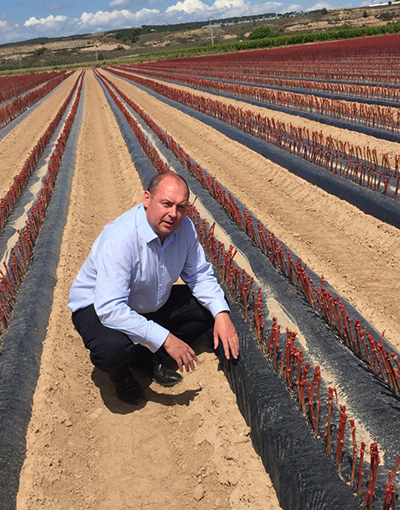
Rupert Hargreaves, co-owner of Global Plant Genetics
Nematodes cause damage to plants by stunting root elongation, changing root growth patterns and removing nutrients. And since many countries around the world prohibit the use of soil sterilants to control them, the economic impact of damage from nematodes is growing.
Efforts to find nematode-resistant grape rootstocks began at UC Davis in 1993, when 75 crosses were made, producing 5,000 individual seedlings for assessment. Evaluation of the results of these crosses began in 1996, with 1,000 seedlings identified — from which the best 100 were advanced to test for nematode resistance. This work was undertaken by Andy Walker, grape breeder and professor in the Department of Viticulture and Enology, and Howard Ferris, professor in the Department of Entomology and Nematology, both from UC Davis.
Walker and Ferris continued their testing and laboratory analysis, using soils with high known and quantifiable nematode infestations as well as plants in pots infected with nematodes. Tests were also undertaken, against a control variety, at temperatures of 30 degrees and higher, where root-knot nematode resistance often breaks down. Having narrowed down the group of seedlings to five selections, two were identified by UC Davis for commercialization in Europe — GRN1 and GRN3.
GRN1 was found to be the most nematode resistant of all the rootstocks tested. It offers resistance to root-knot, dagger, citrus, lesion and ring nematodes as well as phylloxera, a tiny aphidlike insect. This rootstock may be particularly beneficial to wine producers in areas where soil sterilization is no longer an option. GRN1 has a relatively deep rooting profile with moderate vigor and will likely suit warmer climates. It is potentially adaptable to all grape cultivars and has proven easy to graft assuming well matured cuttings are selected.
GRN3 has moderate to high vigor and is more likely to do well in lime-based soils. GRN3 is easy to graft and more adaptable to colder climates. It offers resistance to root-knot, dagger, citrus, lesion and phylloxera, but not ring nematodes.
“We are pleased to be working with Global Plant Genetics as our licensee in the EU to commercialize these rootstock varieties,” said Dushyant Pathak, associate vice chancellor of research and executive director of Venture Catalyst at UC Davis. “The novel properties of the rootstocks developed by professors Walker and Ferris are expected to support the environmentally and economically sustainable production of grapes within the European context.”
Media Contacts
Rupert Hargreaves, Global Plant Genetics
AJ Cheline, UC Davis
New UC Davis Startups Tackle Complex Problems
/in News, Startup /by Aj Cheline
Original post: ucdavis.edu/news/new-uc-davis-startups-tackle-complex-problems
The University of California, Davis, enabled the foundation of 14 commercial startups during the past fiscal year through licensing agreements, or exclusive options to obtain such licenses, for technologies developed at the university. This brings the total number of new startups in the past five years to 63.
“Helping translate university research into community impact and direct benefit to society remains a priority at UC Davis,” said Associate Vice Chancellor of Research Dushyant Pathak, executive director of the university’s Venture Catalyst team. “An important way in which we are facilitating this impact, is through the directed support we are providing to campus innovators in realizing their entrepreneurial ambitions through the formation of better enabled startups,” said Pathak.
Many of this year’s startups address critical needs in human health, such as Tesio Pharmaceuticals, which is looking for ways to prevent arthritis after injury and PvP Biologics, which has created an enzyme that may be a therapeutic treatment for celiac disease.
Cognivive, developed by Tony Simon, a professor in the UC Davis Department of Psychiatry and Behavioral Sciences and a member of the MIND Institute faculty, is developing video games to help people with cognitive deficits. The company builds on research demonstrating that people who play action video games show enhanced abilities in spatiotemporal cognition. Simon developed a “neurotherapeutic” game to help improve the spatial and temporal attention of children with neurodevelopmental disabilities, brain-injury patients and people with age-related cognitive deficits.
Recent testing with game prototypes has shown very promising results.
“We can really increase the extent of the visual field over which people using the treatment game can detect and encode information,” Simon said.
Simon is currently developing a virtual reality version of the game.
XTB Laboratories Inc., founded by Cristina Davis, professor in the Department of Mechanical and Aerospace Engineering, has developed a method that can quickly and noninvasively diagnose a devastating citrus disease known as “citrus greening.” The disease has cost the citrus industry billions of dollars in lost revenue.
HM.CLAUSE and UC Davis Venture Catalyst Extend Commitment to Support Early-stage Startups
/in News /by Aj Cheline
UC Davis Venture Catalyst and HM.CLAUSE have extended and enhanced their partnership on the UC Davis-HM.CLAUSE Life Science Innovation Center, a business incubator focused on advancing regional innovation in the life sciences.
The UC Davis-HM.CLAUSE Life Science Innovation Center is a 3,100 square-foot, off-campus facility located in Davis, California. The facility, which is owned and managed by HM.CLAUSE, a global leader in the production and sale of vegetable seeds, contains biochemistry, molecular biology and chemistry lab space, as well as 1,800 square feet of contiguous greenhouse growth facilities. Established in 2014, it is the only wet lab incubator facility of its kind in the Davis-Sacramento region, supporting life science startups ranging from agtech to human therapeutics. Startups are able to rent dedicated lab bench space in the facility ― which also includes access to shared lab equipment and instrumentation, office space, and meeting rooms ― for a period ranging between six months to two years.
The expanded partnership sets forth a commitment for a minimum of five additional years to support the facility and grow the associated resources available to early-stage startups and other innovative companies. To supplement the shared lab equipment and instrumentation available at the facility, Venture Catalyst has allocated funding received through the University of California Innovation and Entrepreneurship Expansion Bill (AB 2664) to make available additional technical equipment and specialized instrumentation for the benefit of startups leasing space in the incubator. HM.CLAUSE is also making improvements to the facility to expand shared office space and to provide access to additional lab bench space for tenants.
“The successful collaboration with UC Davis on the Life Science Innovation Center has provided us with a unique and beneficial opportunity to engage with innovative ideas being advanced by aspiring entrepreneurs and startup companies within our industry and beyond,” said Cecilia Chi-Ham, director of Innovation, Intellectual Property and R&D Strategy at HM.CLAUSE. “HM.CLAUSE is committed to supporting community-based, local and regional economic development and this is a visible and impactful example of our many efforts on this front.”
The UC Davis-HM.CLAUSE Life Science Innovation Center was the first member of the Venture Catalyst Distributed Research Innovation & Venture Engine (DRIVETM) Program, a network of business incubators on- and off-campus that provide university-affiliated startups access to affordable work space, laboratory space and equipment ― supplemented with support and resources provided by Venture Catalyst. As the region’s innovation ecosystem has matured, the DRIVE Program has grown to include eight members, extending the resources available to university-affiliated entrepreneurs and startups in the Davis-Sacramento region and beyond.
“We are thrilled to enhance our partnership with HM.CLAUSE, which offers wet lab incubator space that addresses the demand for specialized research and development facilities by many of the early-stage, university-affiliated startups we are supporting through Venture Catalyst and its programs,” said Dushyant Pathak, associate vice chancellor of Technology Management & Corporate Relations at UC Davis and executive director of Venture Catalyst. “This collaboration is a critical component in our efforts to cultivate robust technology startups and drive regional economic impact.”
In 2016, HM.CLAUSE received the inaugural UC Davis Chancellor’s Innovative Community Partner Award. This award recognizes a leader or organization in the UC Davis community that has contributed significantly to driving regional economic impact through innovation, entrepreneurship or support for growing a startup ecosystem in collaboration with the university.
Since its launch in 2015, ten early-stage startups have leased space in the incubator. One of the center’s first tenants, Circularis Biotechnologies, Inc., has made notable progress on business milestones while maintaining a presence in the incubator. Circularis has developed a novel method to regulate gene expression and enable increased production yields of proteins, enzymes and small molecules with applications across biotherapeutics manufacturing, industrial biotechnology, and large-scale agriculture. The company was founded by Paul Feldstein, assistant project scientist at UC Davis, to commercialize technology developed at the university. Circularis received funding and mentorship through its participation in IndieBio’s 2015 winter cohort and has since established partnerships with several companies utilizing the platform for industrial and medical applications. “Having access to the UC Davis-HM.CLAUSE Life Science Innovation Center has allowed my company to make significant strides in developing its technology in an environment that promotes collaboration and offers vital access to key pieces of technical equipment,” said Feldstein.
Another recent tenant, MiraculeX, arrived at the Life Science Innovation Center by way of IndieBio, where it participated in the 2016 spring cohort. MiraculeX has received funding to develop plant-based protein sweeteners, intended to be better tasting and healthier natural alternatives to artificial sweeteners for use in foods. Its ability to enhance flavor profiles of existing foods is expected to enable additional applications beyond sweetening, such as the potential to improve appetite in patients undergoing chemotherapy or suffering from chronic wasting conditions associated with reduced food intake. “The UC Davis-HM.CLAUSE Life Science Innovation Center and opportunities for engagement with faculty, staff, and students at UC Davis were critical factors in my decision to move MiraculeX to Davis,” said Alan Perlstein, CEO and founder. “Being able to work in a greenhouse facility and develop connections with the university and a strong network throughout Northern California has accelerated our progress on important company milestones.”
Current university-affiliated tenants at the UC Davis-HM.CLAUSE Life Science Innovation Center include:
- ARIZ Precision Medicine – developing new, targeted biology based and small-molecule based therapies for cancer.
- AstRoNA – combining RNA-based molecular biology and nano-technology/electrical engineering to rapidly and sensitively identify critical microbes, including pathogens of humans, animals and plants.
- Buto Biopharma – developing drugs that impact the Shc target, with implications for anti-diabetes and tissue protection.
- Circularis – developing novel methods to regulate gene expression and enable increased production yields of proteins, enzymes, and small molecules in cellular systems.
- Inserogen – biotechnology company that utilizes proprietary technologies to accelerate Pre-Investigational New Drug research and process development of therapeutic biologics for rare diseases.
- MiraculeX – developing platforms to mass produce natural plant-based protein sweeteners and products.
- PathLog Corporation – developing deep learning analytical tools and sensors for processing, financial analysis and tracking, risk assessment, and pathogen safety for vertically integrated food and agricultural product producers including poultry and pork.
About Venture Catalyst
UC Davis Venture Catalyst facilitates the translation of university research and technology by enabling the effective development of new ventures. Along with directly supporting campus innovators and community-based entrepreneurs, Venture Catalyst engages with the Davis and Sacramento business, government and economic development communities to articulate how UC Davis technologies and startups can be expected to generate regional economic impact. Working closely with these partners, Venture Catalyst is invigorating the technology-based entrepreneurial ecosystem of the region.
About HM.CLAUSE
HM.CLAUSE is a global vegetable seed company dedicated to meeting local needs through global diversity, and is committed to innovation inspired by worldwide partnerships in the scientific, industrial, and commercial fields. An innovative company whose core business is plant breeding, HM.CLAUSE specializes in the development, production, and sales of vegetable seeds worldwide. In 2008, Harris Moran Seed Company (USA) and Clause (France) were grouped together under the HM.CLAUSE Business Unit of Limagrain. HM.CLAUSE generated €325 million in annual sales in 2016 and employs more than 2,800 people full-time located in over 30 countries around the world. Its investments in research and breeding represent 14% of annual sales. The organization coordinates breeding for 25 species and has more than 800 people actively engaged in research and development activities. HM.CLAUSE is a Business Unit of Limagrain, an international agricultural co-operative group, specializing in field seeds, vegetable seeds and cereal products. Founded and managed by French farmers, Limagrain is the 4th largest seed company in the world.
About AB-2664
Assembly Bill 2664, also referred to as the Innovation and Entrepreneurship Expansion bill, was authored by Assemblymember Jacqui Irwin, D-Thousand Oaks, and signed last fall by Governor Jerry Brown. AB 2664 is designed to propel new innovation and entrepreneurship efforts across the University of California through investments in infrastructure, incubators and entrepreneurship education programs. The $22 million investment was dispersed equally to each of the ten UC campuses at the beginning of 2017. Venture Catalyst is the program lead at UC Davis and is implementing a variety of innovation and entrepreneurship expansion activities in conjunction with partners on campus, including the Mike and Renee Child Institute for Innovation and Entrepreneurship, the Engineering Student Startup Center, the Office of the Provost, Graduate Studies and the Internship and Career Center, as well as external community partners, such as HM.CLAUSE.
September 20, 2017
By Ryan Sharp
Related Links
HM.CLAUSE receives UC Davis Chancellor Innovative Community Partner Award
UC Davis partners with HM.CLAUSE to open Life Science Innovation Center
Media Contact
AJ Cheline (530) 219-8739
UC Davis Venture Catalyst partners with The Urban Hive and I/O Labs to build a more robust regional innovation network
/in News /by Aj Cheline
The University of California, Davis, has entered into collaboration agreements through which The Urban Hive and I/O Labs – Sacramento-based innovation, co-working and collaboration spaces – will become the newest members of the Venture Catalyst Distributed Research Innovation & Venture Engine (DRIVETM) network of startup incubators. These new partnerships combine the facilities and resources available through The Urban Hive and I/O Labs with the services, connections and access to resources available to UC Davis affiliated startups through Venture Catalyst to support the translation of ground-breaking research and business concepts into commercial products and services. The addition of The Urban Hive and I/O Labs to the Venture Catalyst DRIVE Network expands access to incubation facilities in Sacramento for UC Davis startups and entrepreneurs to help facilitate enhanced pathways to commercialization of innovative research.
“We are excited to be partnering with The Urban Hive and I/O Labs to support the needs of emerging startups in the region and to help build a more robust innovation ecosystem guided by a regional collaborative network dedicated to economic development,” said Dushyant Pathak, associate vice chancellor of Research at UC Davis and executive director of Venture Catalyst. “This type of coordinated economic engagement is essential to achieving tangible regional impact from university research and technology, and creating an innovation economy that effectively leverages the creativity of the diverse, highly-skilled and talented faculty, students and staff at the university.”
The Urban Hive launched in 2009 with a 6,700-square-foot facility in midtown Sacramento with the goal of supporting entrepreneurial and creative ventures in the Greater Sacramento region by providing access to shared work spaces, private offices, meeting and conference rooms, as well as regular workshops and networking events. The Urban Hive plans to expand to a new 14,000-square-foot facility in the Cannery Business Park development in Sacramento. As part of the expansion, The Urban Hive will introduce product development capabilities, including specialized instrumentation that will allow members to build prototypes and run small-scale production.
This capabilities expansion is being advanced by UC Davis Venture Catalyst with support that includes new equipment and resources for use by local and university-affiliated startups. The investment in maker and related equipment is made possible by funding received by University of California campuses in early-2017 through the UC Innovation & Entrepreneurship Expansion Bill (AB 2664). This bill allocated $22 million to be split equally amongst the UC campuses with the objective of accelerating economic development in the state by expanding university activities and community partnerships that support innovation and entrepreneurship.
I/O Labs, which is also led by The Urban Hive’s founder Brandon Weber, plans to bring 40,000 square feet of innovation space online in downtown Sacramento targeted for initial launch later this year. I/O Labs will create a space where the innovation ecosystem can coalesce, bringing together a unique network of service providers, educational programs and a planned accelerator program to support and mentor entrepreneurs and startups in the facility.
“This collaboration provides enhanced opportunities to both support the needs of university-affiliated entrepreneurs and startups with space, prototyping equipment, and resources and integrate these innovators into a broader network of peers, collaborators, and support providers,” said Weber. “The successful model established at The Urban Hive, and new resources coming online soon through the Urban Hive expansion and I/O Labs, will help innovative companies establish themselves and grow in the region.”
“I am proud to see our $22 million budget allocation put to good use with the UC Davis Venture Catalyst project with I/O Labs and The Urban Hive,” said Assemblymember Kevin McCarty, Chair of the Assembly Budget Committee on Education Finance. “University innovators and entrepreneurs support small businesses in our communities and impact economic development in the Sacramento region.”
In addition to collaboration through the Venture Catalyst DRIVETM Network, the university has also committed to work closely with I/O Labs to help lead renewed efforts around the California Governor’s Office of Business & Economic Development (GO-Biz) statewide Innovation Hub (iHub) program with a shared objective of advancement of a robust regional innovation ecosystem through the Sacramento Region Partner Network.
UC Davis Venture Catalyst Expands Program to Accelerate Technology Commercialization with STAIR-Plus Grants — Announces Recipients
/in News /by Aj ChelineTo support campus innovators in advancing their cutting-edge technologies towards commercialization, Venture Catalyst –within the Technology Management and Corporate Relations division of the UC Davis Office of Research – has offered Science Translation and Innovative Research (STAIRTM) Grants for the last four years. The unique STAIR Grant program provides funding and support to help innovators demonstrate proof-of-concept and commercial feasibility for their technologies. To date, a total of $897,000 has been awarded to 19 faculty members as part of this program.
This year, Venture Catalyst announced the addition of the STAIR-Plus™ Grant program, intended to offer additional support to STAIR Grant recipients who have successfully achieved their projected commercialization milestones and are poised for commercial impact pending completion of specific targeted activities. Each recipient receives up to $20,000 in funding to be deployed over a one year period. Funding for the STAIR-Plus program was made possible by the State of California’s Assembly Bill 2664, which was passed in late 2016.
2017 STAIR-Plus Grant Recipients
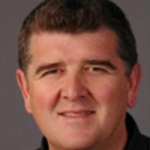
Gino Cortopassi, professor, Department of Molecular Biosciences
Transition to patentable New Chemical Entity Shc inhibitors for Fatty Liver Disease
Cortopassi and his team have identified several compounds that inhibit Shc, a signaling protein that regulates the body’s response to insulin and resistance to pediatric nonalcoholic fatty liver disease. With assistance from the STAIR grant, the team conducted medicinal chemistry optimization to narrow dozens of functional parent molecules down to several of the most productive candidates. The STAIR-Plus Grant will allow the team to conduct additional screening and test the two most potent inhibitors in-vivo in an animal model.
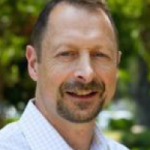
Tony Simon, professor, Department of Psychiatry and Behavioral Sciences
Translation of Neurotherapeutic Video Games to Virtual Reality
Simon has invented a “neurotherapeutic” video game designed to help improve the cognitive abilities of children with one of several genetic disorders, the healthy aging and patients with many forms of Traumatic Brain Injury or Stroke. The STAIR Grant enabled Simon and his team to build prototypes utilizing desktop computers and game consoles which were used to conduct tests to provide evidence of clinical benefit. Simon plans to use funding from the STAIR-Plus Grant to develop, with his game design partner, a second generation prototype utilizing a virtual reality platform and to conduct preliminary tests for usability and efficacy potential.
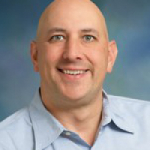
John Voss, professor, Department of Biochemistry and Molecular Medicine
A novel nitroxide-based agent to produce contrast enhancement
for amyloid beta peptide detection by MRI
Voss’s team is developing technology based on a small molecule with potential for the early detection of Alzheimer’s disease. The compound is innovative for its paramagnetic properties, which affect MRI intensities correlating to an early and prominent marker for Alzheimer’s. Unlike available imaging methods, this approach would be less expensive, enable greater patient access and eliminate radiation exposure for the patient. Voss utilized the STAIR Grant to conduct in vivo tests to demonstrate effectiveness and to synthesize nine novel small molecules. Voss plans to use the STAIR-Plus Grant to conduct additional optimization leading to the selection of a lead candidate. He also plans to use high resolution imaging to better correlate the contrast signal with identifiable brain structures.
Each application was reviewed by the STAIR-Plus Grant Review Committee, which included Office of Research staff and external industry reviewers with specific domain expertise. The Review Committee considered the technical merit, commercial potential, outcomes from previous STAIR Grant milestones, and alignment of budget with projected activities for each project.
”I’m thrilled that the California legislature’s investment in innovation and entrepreneurship at the university is enabling us to extend the bridge between cutting-edge research and its potential for transformative human impact,” said Dushyant Pathak, associate vice chancellor of Research and executive director of Venture Catalyst. ”These funds, in addition to the prior investment by the university through our STAIR grants, are accelerating the commercialization of new technologies from UC Davis.”
An important component of the STAIR-Plus program is the engagement of award recipients with additional entrepreneurial and technology commercialization support and resources through a unique collaboration between Venture Catalyst and the Mike and Renee Child Institute for Innovation and Entrepreneurship at UC Davis. Award recipients will participate in a cohort-based series of innovation and commercialization clinics designed to develop the skills and networks needed to explore and expand the commercial potential and resulting societal impact of their ideas.
These highly customized business clinics will include engagement with industry experts and mentors to supplement the workshops, which will be focused on commercialization elements including market and business model validation and coaching for effective business communication.
“We’re honored to help such talented innovators from across our campus to commercialize their work and ensure that the benefits of their research move from the lab and out into the world,” said Cleveland Justis, the institute’s executive director.
AB 2664 Spurs Innovation and Entrepreneurship
Assembly Bill 2664, also referred to as the Innovation and Entrepreneurship Expansion bill, was authored by Assembly member Jacqui Irwin, D-Thousand Oaks, and signed last fall by Governor Jerry Brown. AB 2664 is designed to propel new innovation and entrepreneurship efforts across the University of California through investments in infrastructure, incubators and entrepreneurship education programs. The $22 million investment was dispersed equally to each of the ten UC campuses at the beginning of 2017. Venture Catalyst is the program lead at UC Davis and is implementing a variety of innovation and entrepreneurship expansion activities in conjunction with partners on campus, including the Mike and Renee Child Institute for Innovation & Entrepreneurship, the Engineering Student Startup Center, the Office of the Provost, Graduate Studies and the Internship and Career Center, as well as external community partners.
Media Contacts
AJ Cheline (530)219-8739
Links
• STAIR grant program
• “Digital neurotherapeutic” game in development at the UC Davis MIND Institute
Nine grants, totaling $328,000, awarded to help campus innovators advance research and technology towards commercialization
/in News /by Aj Cheline
UC Davis announced today the recipients of nine proof-of-concept grants totaling $328,000 for campus innovators to advance their research and technologies towards commercialization. These grants and the associated review process are managed by UC Davis Venture Catalyst through the Science Translation and Innovative Research (STAIRTM) grant program, which is in its fourth year, and the newly launched Data, Informatics and Application Launch (DIALTM) grant program.
“It remains the responsibility of public universities like UC Davis, to fulfil their societal mission of generating impact from research, by facilitating the translation of faculty and student research into meaningful products and services that enrich the human experience,” said Dushyant Pathak, associate vice chancellor for research and executive director of Venture Catalyst at UC Davis. “Through our successful STAIR grant program and the newly launched DIAL grants, we are enabling our most innovative campus researchers to map a more effective path from their scientific and engineering breakthroughs to the commercial sphere.”
The 2017 STAIR grant recipients
The STAIR grant program provides awards of up to $50,000 per grant recipient to help campus innovators demonstrate proof-of-concept and commercial feasibility of their technologies. A total of 30 applications were received this year. Six award recipients were selected to receive grants following a multistage review process involving external industry experts, investors and entrepreneurs that evaluated each application based on its market potential, technical merit and ability to achieve identified commercialization milestones with the funds requested.
This year’s STAIR grant recipients are:
 Johnathon Anderson, assistant professor, Stem Cell Research Program
Johnathon Anderson, assistant professor, Stem Cell Research Program
Anderson and his team have developed a novel drug candidate platform for inflammatory diseases that offers the beneficial aspects of stem cell therapeutics with fewer hurdles to clinical development.
 Paul Henderson, associate adjunct professor, Department of Internal Medicine
Paul Henderson, associate adjunct professor, Department of Internal Medicine
Henderson and his team are developing an add-on chemotherapy drug that increases the effectiveness of existing treatment regimens for advanced bladder cancer. Their innovation, an orally bioavailable drug, combines anti-inflammatory and anti-angiogenic properties.
 Lee Miller, associate professor, Center for Mind and Brain
Lee Miller, associate professor, Center for Mind and Brain
Miller and his team have developed a powerful electroencephalogram (EEG) diagnostic that provides a rapid and comprehensive assessment of the functional health of the auditory system, including how speech is processed at different levels and how these levels interact. Their innovation is expected to enable individualized assessments of hearing loss and improve the performance of assistive listening devices.
 David Olson, assistant professor, Department of Chemistry
David Olson, assistant professor, Department of Chemistry
Olson and his team have discovered how to decouple the beneficial effects of neuroplasticity-promoting compounds from their deleterious hallucinogenic and psychostimulant effects in order to develop more effective drug therapies for various neurological disorders.
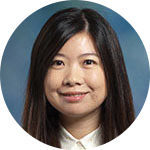 Lin Tian, assistant professor, Department of Biochemistry and Molecular Medicine
Lin Tian, assistant professor, Department of Biochemistry and Molecular Medicine
Tian and her team have developed a novel technology for drug discovery involving G-protein-coupled receptors (GPCRs). Their innovation directly tackles GPCR confrontational dynamics in living cells and organisms, providing a novel platform for rigorous high-throughput cell-based screening and validation.
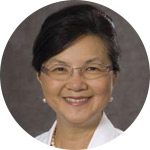 Yu-Jui (Yvonne) Wan, vice chair for research, Department of Pathology and Laboratory Medicine
Yu-Jui (Yvonne) Wan, vice chair for research, Department of Pathology and Laboratory Medicine
Wan and her team are developing a bio-encapsulation process using yeast to deliver retinoic acid and a short-chain fatty acid with histone deacetylase (HDAC) inhibitory properties that benefit the liver and intestine — offering the potential to help prevent and treat metabolic-associated diseases and cancer.
The 2017 DIAL grant recipients
The DIAL grant program is a pilot program structured similarly to the STAIR grant program, which targets commercial opportunities in software, informatics and data science. This program is enabled by funding provided by the State of California under Assembly Bill AB 2664. Passed in 2016, this unique legislation authorizes one-time funding of $2.2 million to each of the 10 University of California campuses with the objective of expanding innovation and entrepreneurship programs on each campus. Three DIAL grant recipients were selected following a review process modeled on the STAIR grant program, based on each project’s market potential, technical merit and ability to achieve identified commercialization milestones with the funds requested.
The DIAL grant award recipients are:
 Petr Janata, professor, Department of Psychology
Petr Janata, professor, Department of Psychology
Janata has invented an online platform that allows users to document and share personal memories they associate with specific pieces of music. Janata’s technology platform leverages his research in the field of cognitive neuroscience and the psychology of music to enable a number of life enriching applications linking music, memory and interpersonal interactions.
 Nelson Max, distinguished professor, Department of Computer Science
Nelson Max, distinguished professor, Department of Computer Science
Max and his team have developed a novel system for use in emergency response training where emergency scenarios can be added to real world environments. His invention uses a quadcopter camera that will add computer-generated artificial reality graphic image components to a computer screen.
 Lisa Miller, professor, Department of Human Ecology
Lisa Miller, professor, Department of Human Ecology
Miller and her team have invented a gaming app to teach nutrition concepts, practice food-choice skills, build nutritional literacy and promote healthy behavior-change in adults to combat poor dietary habits.
Benefits extend beyond financial awards
In addition to the financial support, each recipient of STAIR and DIAL grants is assigned an experienced business mentor to review project milestones, offer commercialization guidance, provide business advice, and facilitate networking opportunities and connections to industry. Additionally, through a collaboration between Venture Catalyst and the UC Davis Mike and Renee Child Institute for Innovation & Entrepreneurship, and enabled by the State of California’s AB 2664 Innovation and Entrepreneurship expansion funding, STAIR and DIAL grant teams will participate in commercialization clinics that will provide them with business and commercialization guidance and skills development.
“The direct interface between grant recipients and experienced industry experts, along with accompanying cohort-based skills development and training, is a critical element of the success of these proof-of-concept grant programs in de-risking UC Davis technologies and moving them closer to commercial uptake and societal impact,” said Pathak. “We are proud of our close collaboration with the Institute for Innovation & Entrepreneurship and grateful to our external industry review panel and participants in the STAIR and DIAL mentor engagement programs.”
Future awards
The application process for next year’s STAIR grant will begin in early 2018 and will be open to anyone with principal investigator status at UC Davis. Postdoctoral scholars and staff are eligible to apply as co-principal investigators. The DIAL grant program offering in subsequent years is yet to be determined and will be announced as soon as a decision has been made.
Media contact
- AJ Cheline, Office of Research, (530) 752-1101, [email protected]


